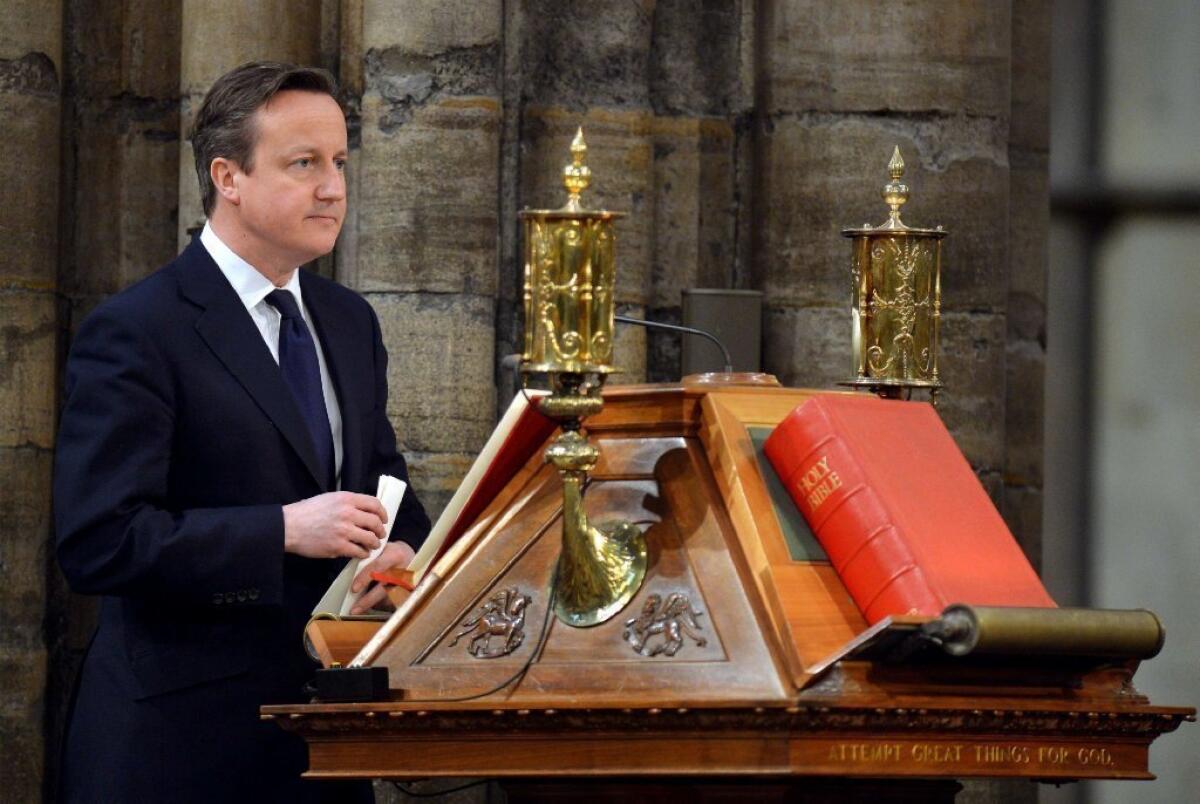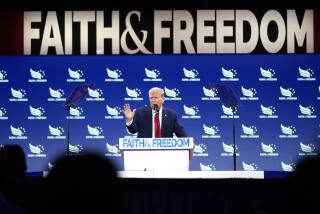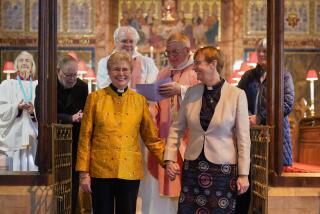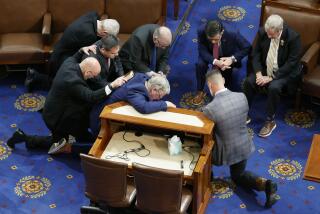Britain a ‘Christian country’? Careful there, prime minister!

- Share via
Prime Minister David Cameron is under fire for suggesting that Britain “should be more confident about our status as a Christian country.” That assertion came in a column the Tory leader wrote for the Church Times, an Anglican publication.
In good Anglican fashion, Cameron was careful to add that “being more confident about our status as a Christian country does not somehow involve doing down other faiths or passing judgment on those with no faith at all.” He also confessed to being a “rather classic” member of the Church of England: “not that regular in attendance, and a bit vague on some of the more difficult parts of the faith.”
The prime minister’s diffidence didn’t help him with his critics, who saw his “privileging” of Christianity as incompatible with contemporary multicultural Britain. In a letter to the Telegraph, 56 writers, intellectuals and entertainers objected to Cameron’s characterization and “the negative consequences for politics and society which this engenders.”
The letter went on: “Apart from in the narrow constitutional sense that we continue to have an established church, Britain is not a ‘Christian country.’ Repeated surveys, polls and studies show that most of us as individuals are not Christian in our beliefs or our religious identities. At a social level, Britain has been shaped for the better by many pre-Christian, non-Christian and post-Christian forces.”
From an American perspective, there is nothing “narrow” about the fact that Britain has an established church, something that even conservative U.S. scholars agree would be impossible in this country because of the 1st Amendment.
But let’s concede the distinction Cameron’s critics want to draw between the Christian nature of the British Constitution and the identity of the United Kingdom as a society. If by “Christian” one means “observant Christian,” the critics may be right, given all the empty pews in those historic churches. (One estimate is that only 6% of Britons attend services regularly.) But when Britons are asked to identify themselves religiously, 6 in 10 say they are Christians.
Perhaps Cameron could have avoided the controversy if he had described Britain as “a largely Christian country” or “a historically Christian country.” But he clearly wanted to suggest that the country, and not just the crown, is Christian, even if members of other faiths (or of no faith) enjoy full citizenship and civil rights. (Similarly, Israelis who insist that Israel be recognized as a Jewish state see no contradiction between that designation and civil rights for Christian and Muslim citizens of Israel.)
A few decades ago, Cameron’s comments might have been uncontroversial. But Britain is today more like the United States, where a president — even one who, like Barack Obama, trumpets his own Christian faith — would think twice before describing America as a Christian country.
But back to Britain. Cameron probably should have realized that his “Christian nation” line would be problematic. A few years ago it was reported that Prince Charles was mulling a change in the monarch’s traditional title of Defender of the Faith (bestowed on Henry VIII by the pope!) to Defender of the Faiths, in recognition of Britain’s religious diversity. (More recently, he has moved to the formula Defender of Faith).
If the future head of the Church of the England doesn’t believe his realm is a Christian country, maybe the prime minister should think again.
ALSO:
Affirmative action banned? It’s not that simple.
USC shooter’s 40-year prison sentence: Don’t call it justice
Climbing Everest shouldn’t just be an item on someone’s bucket list
Follow Michael McGough on Twitter @MichaelMcGough3
More to Read
A cure for the common opinion
Get thought-provoking perspectives with our weekly newsletter.
You may occasionally receive promotional content from the Los Angeles Times.











